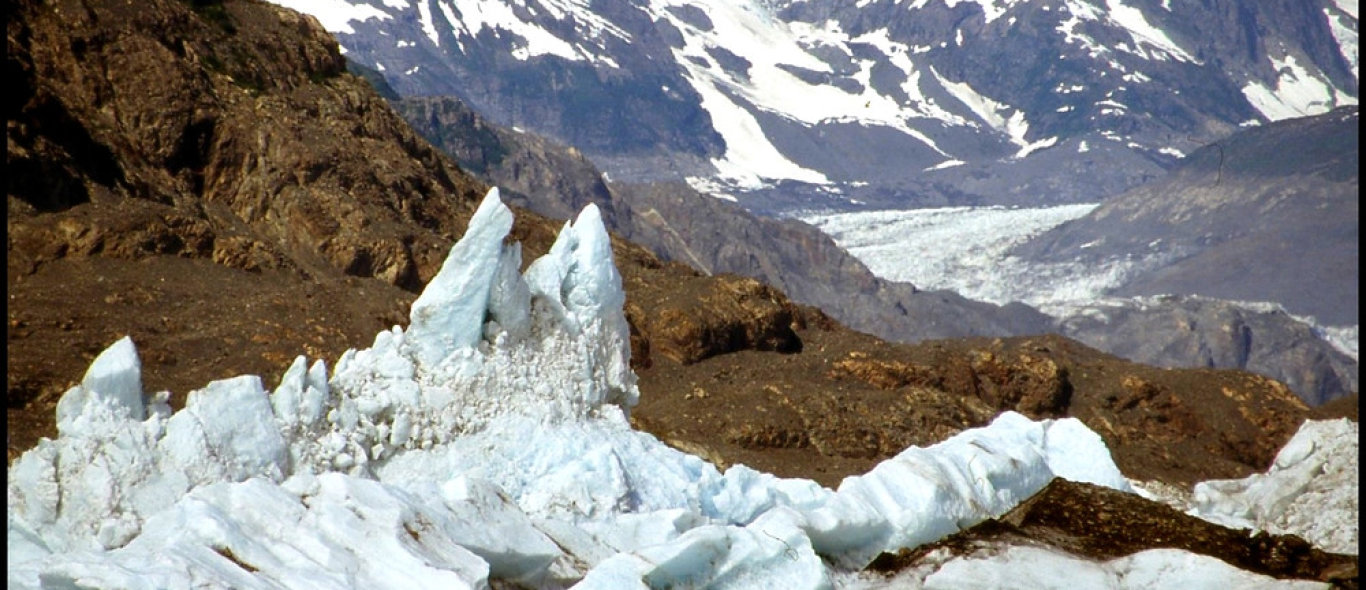
Alaska
National Outdoor and Leadership School in Alaska
The rainy afternoon of July the 23rd is coming to a close as our NOLS group paddles the last strokes of the day and reaches a small stoney beach in Cochrane Bay.
Allen and I are the first to go to shore, carefully stepping out of our kayak so we don't top our xtratuf boots. We are todays 'beach bosses', and it's our duty to check out the conditions of a new possible campsite and determine if it could be our home for the night. We scout the beach and the bushes surrounding it with our tide chart and bear sprays handy, calling a loud "héééy bear!" every now and then. The beach is very slanted and quite small; no more then 5 meters deep and 50 meters wide. Not a whole lot of space for a group of 15 people with 5 large tents, 4 tarps and 10 kayaks. But after a quick meeting with the LOD's (leaders of the day) we decide to stay. It's been a nice long day, and it's time to set up camp, get ourselves warm and (if possible) dry. We empty our kayaks of all our gear, lift them up and carry them far beyond the high tide line to a safe spot, and continue setting up our tents. The instructors show us how we can create 'sleep levels' in the stoney surface, so we can all get a decent nights sleep and don't roll down in the sea.
Once we're all settled some of the group takes off to go fishing. We can see the fish swimming and jumping out of the water from our tarps. It's not too long before they return, carrying several big salmons with them. We all gather around and admire the catches before the fisher(wo)men go to work, and it's less then an hour later when our instructor Lloyd comes around handing out freshly baked salmon. I'm not a big fish person, but there's something about eating a freshly caught Alaskan salmon that I saw swimming around 2 hours ago.
We eat our fill of salmon, boil some water on our stoves for a hot drink, check the charts for tomorrow, clean our pots with gravel and sea water, brush our teeth and spit in the sea, and dive behind a rock for a last nature call before snuggling into our sleeping bags. And it is during that moment, as I crouch behind a big rock just 'around the corner' from our camp, that I see something big and black moving by the creek about 50 meters ahead of me. A black bear enjoying his fish diner, just like we did. The bear has its back turned to me and is not aware of its audience, so I watch it for a minute or two before slowly backing away.
I inform one of the instructors, who immediately takes action. The camp needs to be bear proofed better then ever, now that we know bears are very close. We each take one or two bear sprays with us in our tents, all the food and scented items go in bags underneath our tarps, and of course all traces from our fish diner have to be completely erased.
Later that evening I crawl in my sleeping bag, feeling very 'Alaskan'. I just finished telling the girls in my tent how to make a safe 'don't scare a bear tent exit', how to respond when they see the black bear and everything else on bears that weeks in Denali taught me. It's almost midnight, but it's still light outside. It's cold, I'm wearing all of my layers and my fleece hat. I can't hear anything else besides the sea washing on shore and the splashes from the salmon jumping out of the water. I can smell the salty water in the air. I know that there is nothing but nature surrounding us, endless waters and lands. I know that we carry everything we need to survive and thrive in these conditions. And I know that tomorrow, the adventure continues.
Out there, I sometimes felt like John Smith, the ignorant and western society educated European who comes to the New Lands and can't believe all the beauty, space, adventure and wilderness he finds. The wilderness that taught Pocahontas to "Sing with all the voices of the mountains" and "Paint with all the colors of the wind". I know now what voices she heard, and what colors she saw.
What Pocahontas knew was to listen to nature. To recognize and embrace the sounds, sights and souls she found there. Never in my life have I been away from society for so long, have I been in such wilderness untouched by men. But, being there has taught me something rare I believe. Something Pocahontas knew all about. I have learned to listen to nature, to truly listen and feel it. To listen to nature, and hear nothing but the wind, water and wildlife. No man made sounds, ever. Not for 2 weeks. To experience such simple but pleasant tranquility and calmness, and feel totally at home in it. To get used to it, and to slowly start distinguishing all the different sounds of nature. The different voices.
I have learned to look, to see and to feel wilderness. To build your character and having your soul shaped by enduring endless rain, paddling through deep and wavy waters, climbing a peak with a heavy bag pack on, staying positive and happy with nothing but the bare necessities, being cut off from society for weeks on end, learn to be a visitor in the wilderness, grow as a person, and live in response to nature.
Doing this NOLS course has changed all meaning of nature for me. And it's beautiful to know that there is still enough space, wilderness and opportunity for that - here in Alaska.
